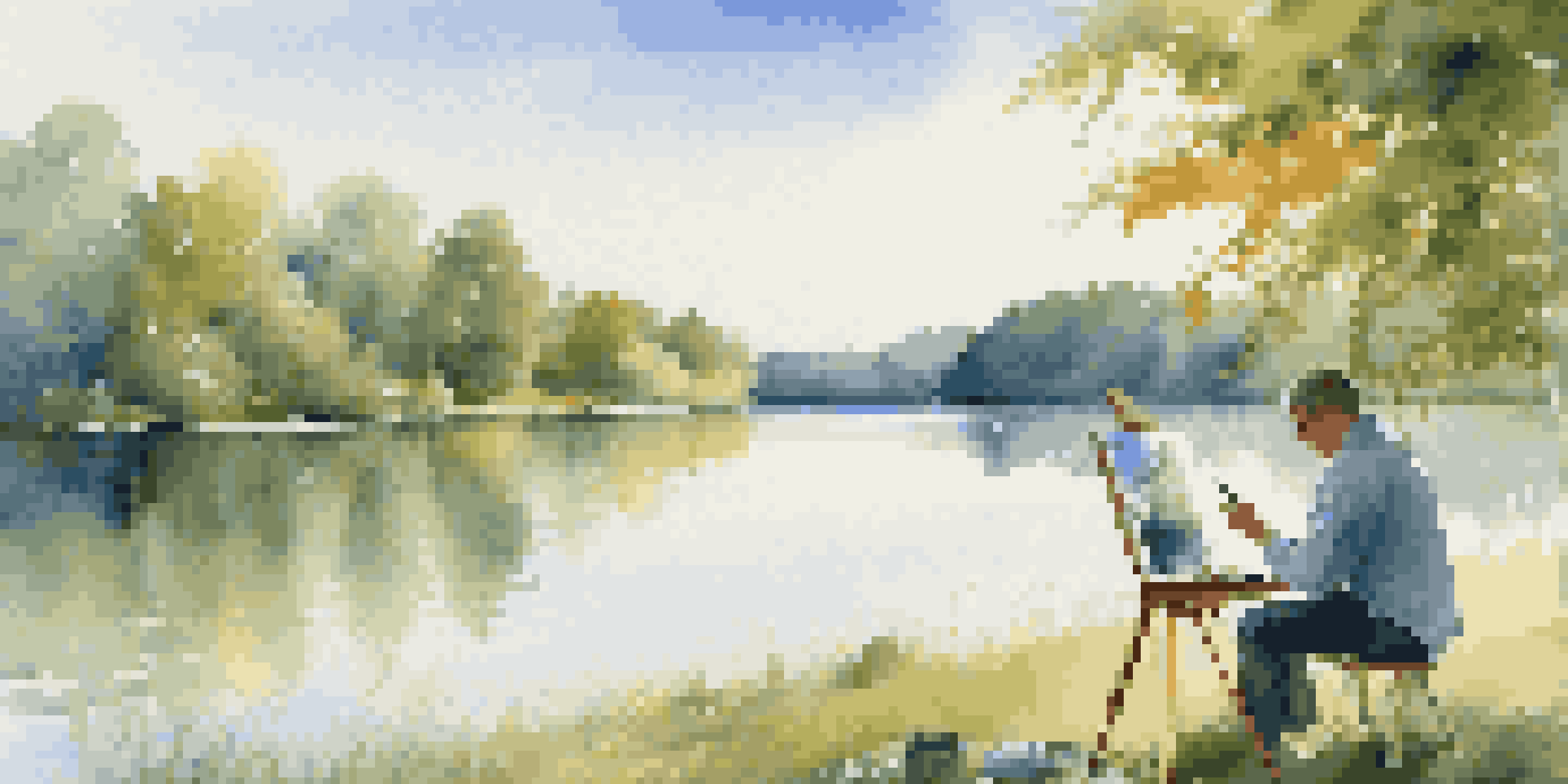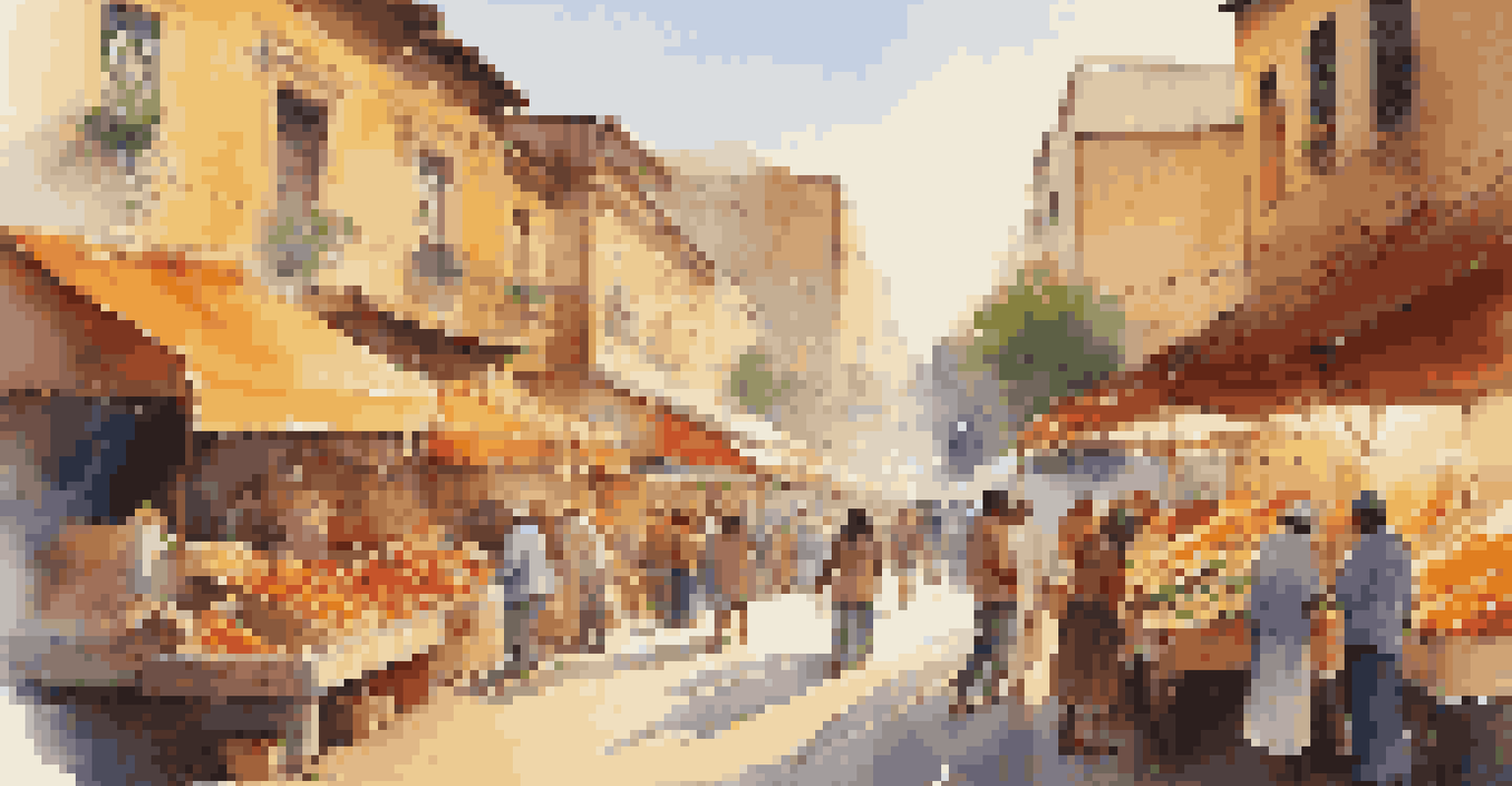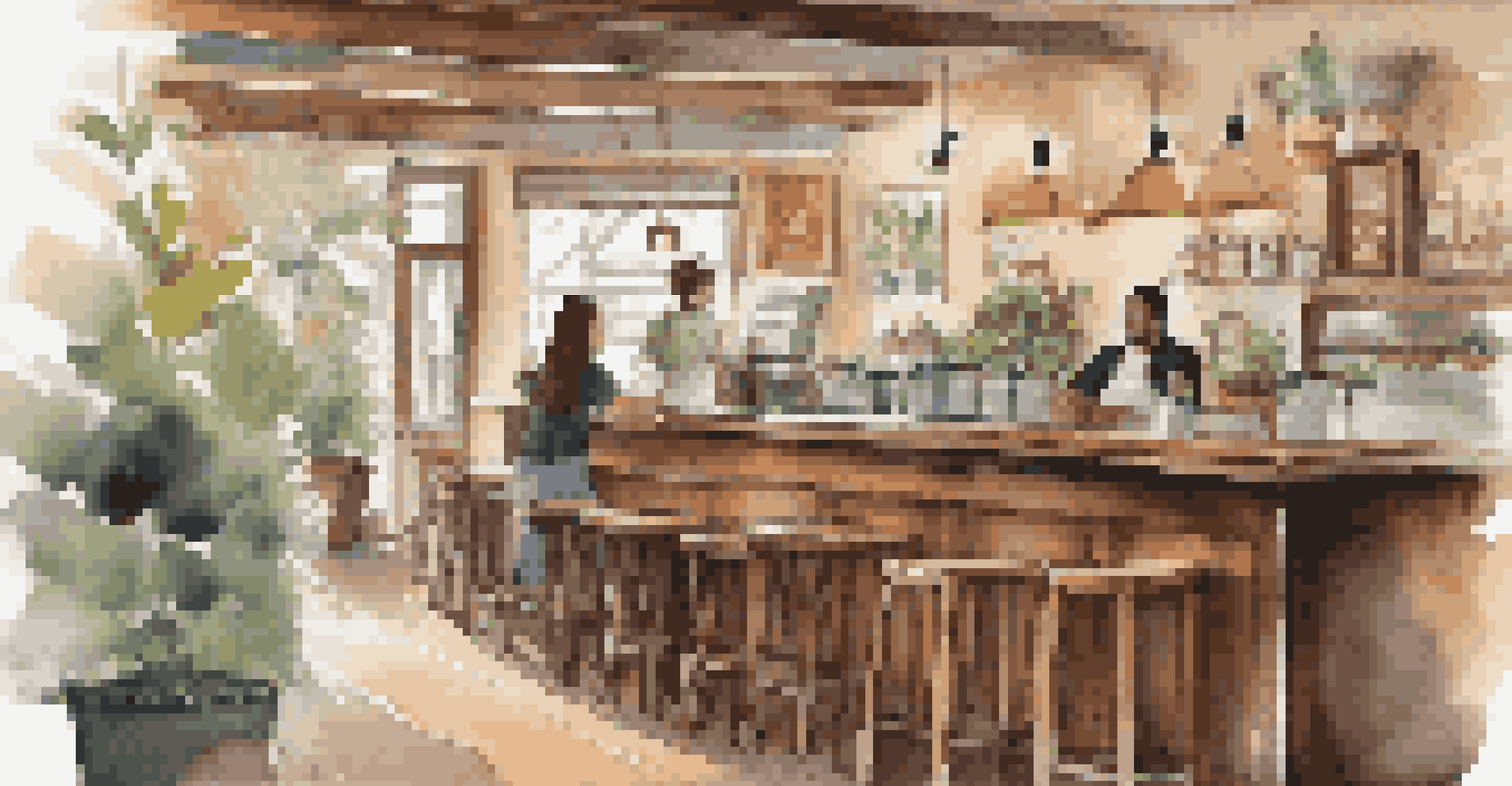How to Make the Most of Your Educational Travel Experience

Set Clear Learning Goals Before You Go
Before embarking on your educational journey, take some time to define what you hope to achieve. Setting clear learning goals will guide your experiences and help you focus on what truly matters. For instance, if you're visiting historical sites, you might want to understand the context of the events that took place there.
The journey not the arrival matters.
Consider creating a list of specific skills or knowledge areas you want to improve. This could include mastering a new language or learning about local customs. By having these goals in mind, you can tailor your activities and conversations to align with them, making your trip more enriching.
Lastly, be flexible. While it’s important to have goals, embracing spontaneity can lead to unexpected learning opportunities. Sometimes, the best lessons come from unplanned experiences, so be open to changing your itinerary if something intriguing arises.
Engage with Local Culture for Deeper Understanding
One of the most rewarding aspects of educational travel is immersing yourself in the local culture. Seek out authentic experiences by engaging with locals—be it through a cooking class, community event, or simply chatting in a café. This not only enhances your understanding but also builds meaningful connections.

For example, if you're studying art history, visiting local galleries and discussing techniques with artists can provide insights that books can't offer. You’ll gain a perspective shaped by the culture and experiences of those who live there, enriching your educational journey.
Set Clear Learning Goals
Defining specific learning objectives before your trip helps focus your experiences and enriches your educational journey.
Additionally, consider embracing local traditions and customs. Participating in festivals or rituals can deepen your appreciation for the culture and create lasting memories that go beyond your academic goals.
Document Your Experiences for Reflection
Keeping a travel journal is a fantastic way to document your educational journey. Writing down your thoughts, feelings, and observations allows you to reflect on your experiences later. It also helps you retain the knowledge you've gained and can serve as a valuable resource for future projects or studies.
Travel is the only thing you buy that makes you richer.
Consider adding sketches, photos, or even mementos to your journal. These elements can provide context and make your reflections more vibrant and memorable. When you look back, you'll not only recall the facts but also the emotions tied to your experiences.
Furthermore, sharing your reflections with peers or on social media can inspire others to embark on their own educational travels. You never know how your insights could spark someone else’s curiosity or passion for learning.
Network with Fellow Travelers and Locals
Educational travel is an excellent opportunity to meet like-minded individuals. Networking with fellow travelers and locals can expand your horizons and introduce you to new perspectives. Consider joining group tours, workshops, or local meetups to connect with others who share your interests.
Engaging in conversations can lead to valuable exchanges of knowledge—whether it’s sharing tips on where to find the best local cuisine or discussing academic topics. These connections may also result in long-lasting friendships and professional relationships.
Engage with Local Culture
Immersing yourself in local customs and connecting with residents enhances your understanding and appreciation of the culture.
Don't underestimate the power of social media platforms to foster these connections. Sharing your travel experiences online can attract others with similar interests, creating a community that supports and encourages your educational pursuits.
Stay Open-Minded and Embrace New Ideas
Traveling for educational purposes often exposes you to diverse viewpoints and ideas. Staying open-minded is crucial; it allows you to appreciate different cultures and philosophies without judgment. This mindset can lead to profound personal growth and a broader understanding of the world.
For instance, if you're studying environmental science, engaging with local conservation efforts can introduce you to alternative approaches and solutions to global issues. Listening to the perspectives of those affected by these challenges can offer invaluable insights that textbooks may not cover.
Remember, every encounter is an opportunity to learn. Embrace the unfamiliar, challenge your assumptions, and be willing to adapt your views based on new information. This flexibility can enrich your educational experience and instill a lifelong love of learning.
Utilize Technology for Enhanced Learning
In today’s digital age, there are countless tools and resources available to enhance your educational travel experience. Utilize apps for language learning, navigation, or cultural etiquette to make your journey smoother and more insightful. These tools can help bridge gaps and provide context where traditional learning may fall short.
Consider using your smartphone or tablet to access online courses or podcasts related to your destination. This way, you can prepare yourself before you arrive and deepen your knowledge while you explore. For example, listening to a podcast about the history of a site you plan to visit can enrich your understanding as you walk through it.
Reflect and Share Your Learnings
Taking time to reflect on and share your experiences after your travels solidifies your learning and inspires others.
Lastly, don’t forget to document your travels digitally as well. Sharing your journey through blogs, vlogs, or social media can create a dynamic narrative of your educational experiences, allowing you to engage with others and reflect on your learning.
Balance Learning with Relaxation and Fun
While the goal of educational travel is to learn, it’s essential to balance your studies with moments of relaxation and fun. Overloading your itinerary can lead to burnout and diminish the enjoyment of your trip. Make sure to schedule downtime to recharge and soak in the experiences around you.
Engaging in leisure activities can also enhance your learning. For example, exploring local parks, attending cultural performances, or trying regional cuisine can provide context and insights that complement your academic goals. These experiences can foster a deeper appreciation for the place you’re visiting.

Remember, travel is not just about what you learn, but also how you feel. Embrace the joy of exploration, and don’t hesitate to indulge in spontaneous adventures. Sometimes, the most valuable lessons come when you least expect them.
Reflect and Share Your Learnings After the Trip
Once you return from your educational travel, take the time to reflect on your experiences. Consider how your journey has impacted your understanding of your subject matter and what new perspectives you’ve gained. This reflection can solidify your learning and help you apply it in future endeavors.
Sharing your experiences with others can also be beneficial. Whether through presentations, blog posts, or casual conversations, articulating what you've learned reinforces your knowledge and can inspire others. It’s a great way to keep the learning alive long after your travels have ended.
Finally, think about how you can integrate your new knowledge into your daily life or future studies. Educational travel is a catalyst for growth, and applying what you’ve learned will help ensure that your experiences continue to resonate long after your journey concludes.